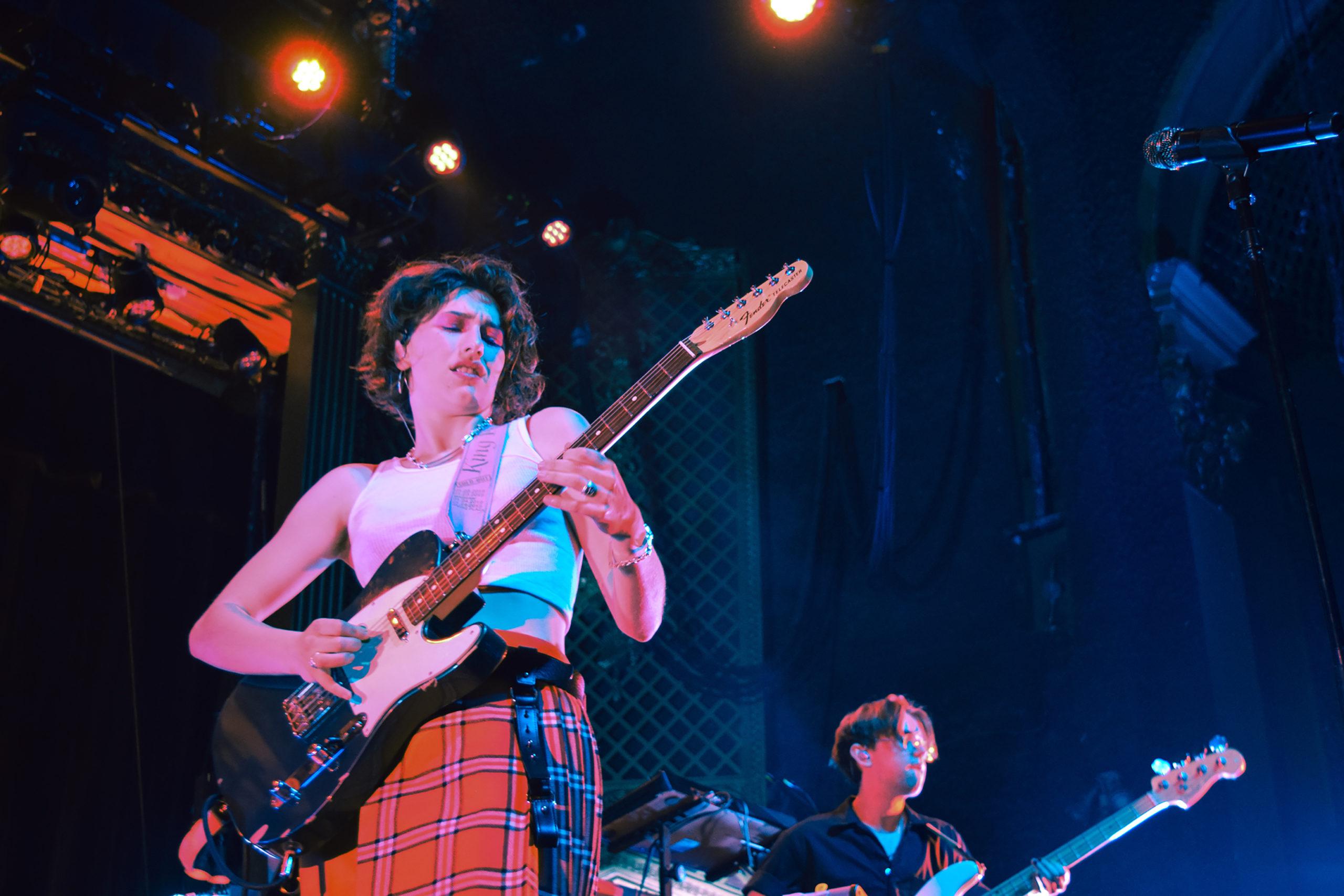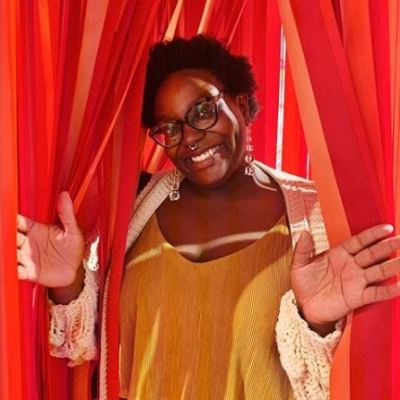
King Princess made her Denver live show debut on Sunday, Feb. 2, and she made it a memorable one for the soldout crowd at the Ogden Theatre.
The night's warm-up consisted of two raucous drag performances. Then King Princess took the stage, showcasing her multi-instrumental talents and crooning away to rock ballad singles off 2019's LP "Cheap Queen."
Ahead of the wild show, we sat down with frontwoman Mikaela Straus. Here's what she had to say on queerness in pop music, dropping out of college to pursue music full time and having her tunes played on the radio.
Q: Tell me about the origins of King Princess.
Mikaela Straus: She is me. I feel like King Princess is really the truest form of myself. She’s what makes sense to me gender-wise, sexuality-wise. Truly a little this, a little that.
Q: Did you feel like while growing up you could be open with your queerness?
MS: I had good parents. They weren’t out here like “YOU’RE GAY!” There wasn’t an option for me to really feel stifled in that way. Every parent has growing pangs to a certain degree, just realizing that your kid is going to have to do some crazy, wacky s--- to conceive. The biggest thing is that the parents that are accepting, it still takes a while to get into it.
Q: Did they feel a certain way when you dropped out of college to pursue King Princess full time?
MS: No, they were like, “Please leave. We literally cannot afford this. For the love of God get out of there.”
Q: Were you worried about dropping out and King Princess not working out?
MS: No. There was no other options. I have no other skills. I feel like people who do backup plans are the ones who are like. “Yeah, I like music. (shrugs)" Like music is all I got.
Q: Well the first time I heard your music on the radio was on public radio—
MS: YES! Shoutout to that. Seriously, that s--- is really important. Like I understand how it is with super radio.
Q: —I heard “1950” and I remember screaming at the radio like “Yes! Finally!” because I knew the song was about a woman loving another woman and those lyrics weren’t watered down. I mean, unfortunately, we won’t be hearing “Pussy Is God” on the radio anytime soon, but—
MS: She might be a “no.” (laughs)
Q: —I think that it’s so important that the music you write doesn’t get watered down and still makes it to the radio.
MS: It’s so funny because you could literally be a man out here like saying f----- up s--- and they just bleep you. You can literally be out here saying you’re going to f--- random b------ against their will and just have the curse words bleeped. It’s crazy for a woman, or a female-presenting person, because that’s who I am, to talk about loving another woman’s puss. That seems pretty chill to me, personally. (laughs)
Q: Since the album Cheap Queen and its release last fall, has it been difficult for you to perform those songs live?
MS: It isn’t difficult, but it is challenging to confront feelings that you felt in a place of true darkness, and now kids are singing them. You want to be the person that makes it OK to feel pain; however, you want to protect your own mental health.
Q: Your social media is also another way that allows you to connect personally with your fans.
MS: I feel like on my social media all I have to offer is humor. I know I’m super politicized because I’m gay, but I just wanna be funny. You see people on the internet complaining about their issues, but that’s not for me. I’m not really interested in the internet’s opinion on my feelings, so that’s where their music comes in.
My music is a great place to figure out how I’m feeling. That’s a huge part of why I like being vulnerable in my songs and not on social media because I find it to be more real when you’re like, “Here’s something I made from this pain. Please take what you will from it. I’m not here to explain it, but I’m here to deliver it.”
Q: Do you feel like what you’re doing is helping to normalize queerness in pop?
MS: For sure. All these pop and rock gods throughout history are always presenting queer. What made it so insanely accessible and also jarring is when you’re playing with gender or sexuality on stage, and in performance, you get something that’s really magical. I think that’s what’s really being tapped into right now. People are recognizing that that perspective is valid. They didn’t want to think about the sex part before.
Q: What advice do you have for queer artists just starting out in their music journey?
MS: You have to realize how profitable you are first. This is the perfect time to know yourself. You have to know your worth on a business level which is a hard thing to conceptualize because when you talk about identity it can feel really heartless and soul-less, but it’s not.
As long as you’re surrounded by people who understand the grander reason for you doing this is because you love art then you’re allowed to sell yourself. I think we should stop telling people that it’s all about the “heart” and the “music.” No, b----, it’s about knowing your worth. How much is your gay art right now in social and monetary value? Right now, it’s really high because we have finally been given a platform.
King Princess will do a short tour supporting The Strokes, and then start a European tour opening for Harry Styles this spring.








